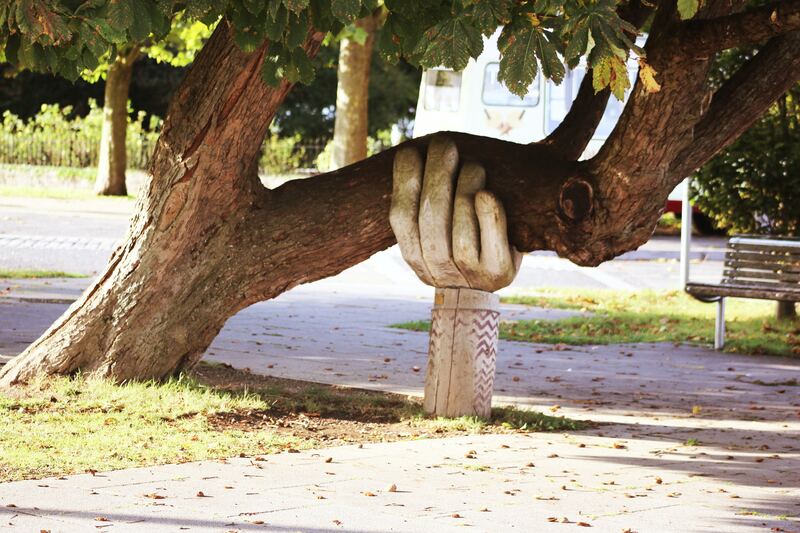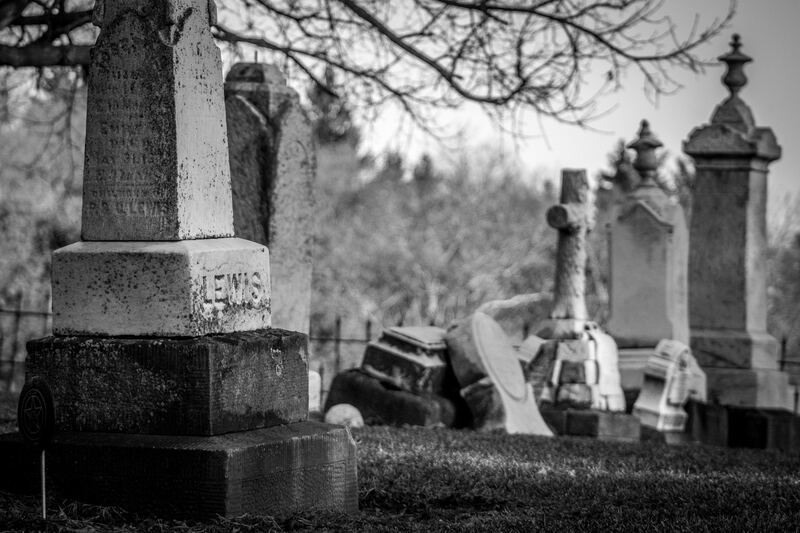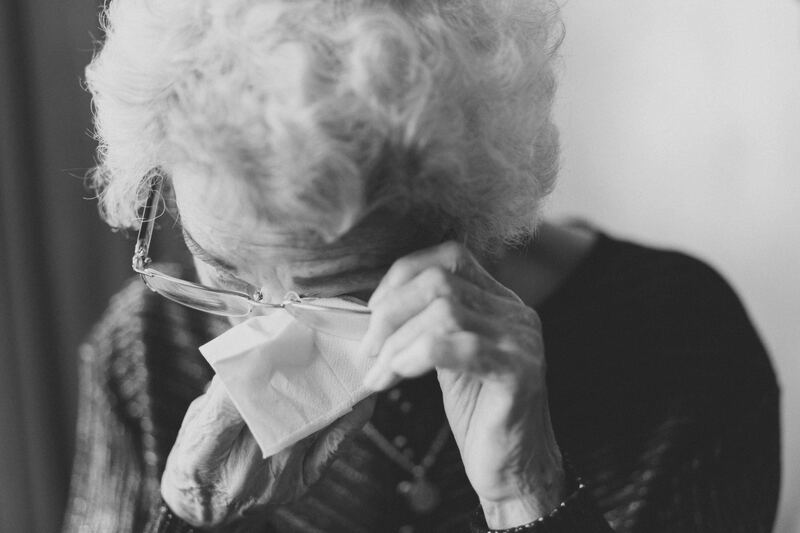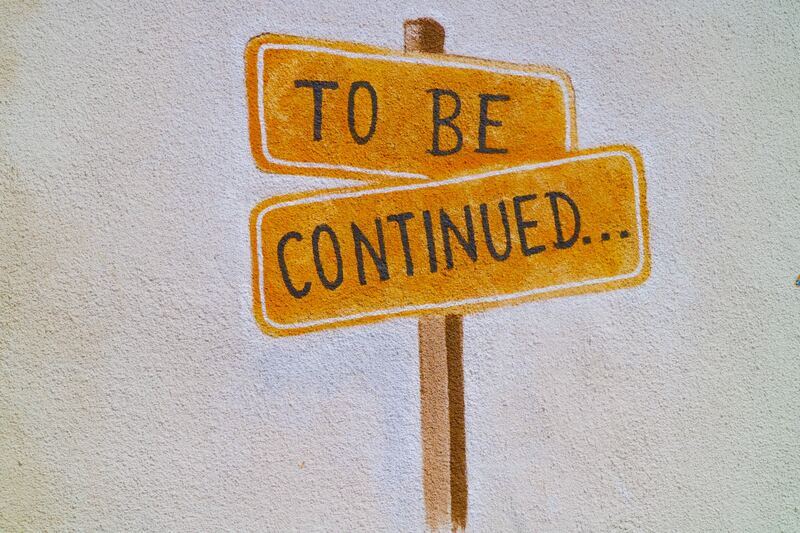Grief Resources
Browse our library of content to support grievers.
-
Popular Quotes About the Loss of a Spouse
Sometimes, a single quote can be as effective as an entire book or essay. It’s incredible the impact just a sentence or two can have on our perspective, thought process, and worldview. In fact, some people base their whole ideology on a famous quote. Think of Gandhi’s quote, “Be the change you wish to see in the world,” or Tolkien’s quote, “Not all who wander are lost.” After the loss of a spouse, quotes can inspire, comfort, or provide a sense of solace. They can be easily memorized, posted on a mirror or refrigerator, and referenced when we need consolation. Here are ten quotes to read after the loss of a spouse:
-
3 min
- Read More

-
-
How to Support Those Grieving the Loss of Their Mother
The death of a loved one is always tricky. Just as each relationship is unique, each loss will have its nuances. For many, the loss of their mother is a profound one. Many of our first memories involve our mothers. Through her care and concern, we came to know love. Whether it’s the woman who gave birth to you or the woman who chose to raise you, the role of a mother is unique.
-
3 min
- Read More

-
-
Books Unique To Grieving the Loss of a Mother
Whether you are personally experiencing the raw emotions of losing your mother or helping a loved one grieve the loss of their mother, books can be viewed as a great tool in their “grief toolkit.” These books give their readers a “me too” perspective as they read of others who have walked this road before them.
-
4 min
- Read More

-
-
Advice for Grieving the Loss of a Loved One
Grief can enter your life like a wrecking ball when a loved one dies. Life can look and feel very different. With anticipatory loss, the need to care for your loved one can leave significant gaps in your days. Sudden losses can leave you stunned and shocked by the absence of someone with whom you shared your life. All of this can leave you trying to sort through the pieces of your life and a broken heart.
-
4 min
- Read More

-
-
Analogies Unique to Grieving
When you are walking through grief, it can be hard to explain how you’re doing or what your loss feels like. Many analogies and metaphors have been written to describe individual loss experiences, and perhaps one of these listed below will help you more accurately describe your own experiences.
-
3 min
- Read More

-
-
Conferences Unique to Grief in 2023
For many, the loss of a loved one can start them on a journey to understand grief and loss at a granular level. Conferences and seminars can help individuals understand their grief and loss with an educational foundation. Many of them gather yearly, offering regional or national seminars and conferences.
-
3 min
- Read More

-
-
Podcasts Unique to Someone Grieving
In the throes of fresh loss and grief, it can be hard to focus on reading a book about working through what you’re walking through. Podcasts can provide insight and a much-needed “me too” for those who have lost loved ones and are working to process their grief. Here are a few you may want to check out:
-
4 min
- Read More

-
-
Bible Verses Unique to the Grieving
We will never walk alone through life's hardships for those who have placed their faith in Jesus Christ. His words in the pages of scripture promise God will be with us through it all. And not only with us, he also sympathizes and strengthens us through our suffering. Below are some of His promises and words of comfort.
-
4 min
- Read More

-
-
Popular Quotes Unique to Grief
In the midst of grief, it can be hard to find your words, let alone your voice through it all. Here are some well-known quotes that may help express the very things in your heart.
-
6 min
- Read More

-
-
Movies Unique to Someone Grieving
Films can transport us into the lives of characters who share many of the same hardships we do. The list of movies below covers a wide range of emotions dealing with life, death, grief, and loss.
-
5 min
- Read More

-
-

-
Against Grieving in Silence by Rachel Stephenson (with summary)
https://www.youtube.com/watch?v=6zIFGl5tPQQ
-
1 min
- Read More
-
-
TV Shows Unique to Death and Grief
When you’re grieving, sometimes finding a show that discusses loss and grief is helpful. Storylines that depict the relationship of the person you’ve lost or the way your loved one passed away, can be healing all their own. Below are some TV shows that cover a variety of loss and grief topics.
-
5 min
- Read More

-
-
Subreddits for Those Greiving Loss
Reddit is a social network with forum-style discussions with a wide variety of topics. These can build a sense of community and support for those losing a loved one, working through grief, and all the issues related to death. If you don’t see the specific topic you’re looking for, you can sign up as a user and get involved by starting your Subreddit.
-
3 min
- Read More

-
-
“Rest in Peace” Phrase History
From social media posts to obituaries, tombstones, and even Halloween decor, we’ve all seen the acronym RIP—rest in peace. But where did it come from originally?
-
3 min
- Read More

-
-
The Stages of Grief
The truth is loss affects all of us, and we will all experience death and loss to varying degrees. Perhaps you lost a family member, a close friend, or even an acquaintance.
-
3 min
- Read More

-
-
The Denial Stage of Grief
After losing your loved one, denial often surfaces after the initial shock. Denial is the refusal to admit or believe something true and is a normal stage to pass through when you lose someone you love as you walk through grief.
-
2 min
- Read More

-
-
The Anger Stage of Grief
C.S. Lewis once wrote, “I sat with my anger long enough until she told me her real name was grief.”
-
3 min
- Read More

-
-
The Grief Recovery Method
In 1977 overwhelmed with grief after the death of his infant son, John W. James created his own process for grief, which ultimately resulted in the creation of the Grief Recovery Method. Together with Russell Friedman, they authored The Grief Recovery Handbook.
-
2 min
- Read More

-
-
The Bargaining Stage of Grief
Since the release of Elisabeth Kubler-Ross’ book, "On Death and Dying," the five stages of grief have become more familiar: denial, anger, bargaining, depression, and acceptance. However, of the five stages, the bargaining stage may be the least understood.
-
2 min
- Read More

-
-
The Depression Stage of Grief
Grief can evoke an overwhelming wave of emotions. From shock and denial to anger, bargaining, depression, and acceptance, grief has many stages. While not everyone will go through each stage in order, most will experience the stages to varying degrees.
-
3 min
- Read More

-
-
The Acceptance Stage of Grief
Dealing with grief after the loss of someone you love brings an overwhelming range of emotions with it. These stages of grief include shock and denial, anger, bargaining, depression, and acceptance. Acceptance means the act of accepting something or something as fact. But what does that actually look like when you’re processing the grief after the loss of someone you love?
-
3 min
- Read More

-
-
Alternative Frameworks to the Five Stages of Grief
In the late 60s, Elizabeth Kubler-Ross wrote the book, On Greif and Dying, after years of work with terminally ill patients. In her book, she detailed the five stages of grief: denial, anger, bargaining, depression, and acceptance. While her observations were derived from working with the dying, she hypothesized that the five stages also easily translate and be applied to those wrestling with grief and loss.
-
3 min
- Read More

-
-
Popular Ted Talks About Grief and Loss
TED (Technology, Entertainment, Design) Talks are a popular platform for sharing ideas and stories on a wide range of topics, including grief and bereavement. Here are a few popular TED Talks about grief that might be helpful for those who are struggling with the loss of a loved one:
-
4 min
- Read More

-
-
Do You Ever Fully Recover From Grief?
It was a beautiful fall day when we learned one of our close friends, a groomsman in our wedding, passed away unexpectedly. The following year, my mother-in-law suddenly passed away. Eight months later, after an unsuspecting illness, my mother passed away too. I could hardly recognize the ashes of our lives over those 18 months. Each loss was increasingly hard. Could I ever recover from this?
-
3 min
- Read More

-
-
Ways to Memorialize a Loved One
It’s been said that grief is an expression of the deep love you feel for your loved one that passed away. Losing someone you love can cause you to feel pain unlike anything you’ve ever known. Their absence can feel like a gaping wound. As you process your grief you may find yourself wondering how you can memorialize your loved one. This is a wonderful, healthy way to process your grief. Below we’ve listed a few ways you might consider.
-
4 min
- Read More

-
-
Common Symbols of Death
There are many symbols that are commonly associated with death, and they can vary depending on culture, religion, and personal beliefs. Here are a few common symbols of death:
-
4 min
- Read More

-
-
Cultures With Ceremonies to Celebrate Dead Loved Ones
There are a variety of annual ceremonies celebrating and remembering loved ones across various cultures. We’ve compiled a list of some below.
-
3 min
- Read More

-
-
Different Categories of Resources Associated With Grief and Loss
When you lose a loved one, the shock of their absence can leave you spiraling. You might know you need support and resources, but feel unsure what kind of resources you need. For those supporting a griever, learning about your family or friend's type of loss is a great way to put yourself in their shoes and respond with empathy. There are a variety of categories of content associated with grief resources for people experiencing the death of a loved one. Here are some common categories that may help you on your grief journey.
-
4 min
- Read More

-
-
eBook Resources for Loss
When you’re in the throes of deep grief, brain fog makes even the easiest tasks harder. Even trying to focus on reading all the resources that can help you walk through your grief can be difficult. Thankfully, there are a lot of eBook options, where you can listen to books specific to your grief needs. Here’s an example of some grief eBooks. You can find more titles wherever you listen to your audiobooks.
-
4 min
- Read More

-
-
Tips for Coping with Loss
Losing a loved one can be one of the most difficult experiences a person can go through. The pain and waves of emotions can make life feel chaotic and leave you unaware of how to handle everything that comes with loss and grief. Coping with the loss of a loved one can take time and patience, and it is important to take care of yourself both emotionally and physically. Here are a few tips to help you cope with the loss of your loved one.
-
3 min
- Read More

-
-
Important Elements of Self-Care During Grief
Grief can be a difficult and overwhelming process. Self-care is a great way to help cope with the emotional and physical stress of loss. Here are some ways to incorporate self-care into your grief process.
-
2 min
- Read More
-
-
Support Group Options
Loss and grief can be a lonely, isolating time. Finding a grief support group is a healthy way to stay connected to those experiencing similar emotions. These can be beneficial ways to connect with others who have experienced similar losses and understand what you are going through. Here are a few ways to explore the best support group for yourself and your particular loss.
-
2 min
- Read More
-
-
Grief Hotlines
Grief hotlines can provide immediate support and assistance for those grieving the loss of a loved one. Whether you're grieving the loss of a child, parent, or family member, there are a variety of helplines and hotlines ready and willing to come alongside you during your grief and loss. Here are a few commonly used ones.
-
3 min
- Read More
-
-
In-Person Grief Recovery Programs
In-person grief recovery programs can provide support, guidance, and needed resources for those grieving the loss of a loved one. Sitting amongst those who have experienced a loss similar to yours can be a healthy way to process your grief together. Here is a list of general groups. You can do a quick online search to find the group closest to you that fits your needs.
-
2 min
- Read More
-
-
Practical Ways To Help a family When a Parent Dies
When a family loses a parent, household tasks may become overwhelming and hard to manage. It's important to remember when you want to help to ask them how they need help. Here is a list of some practical household tasks a family may need help with when their mother dies:
-
2 min
- Read More
-
-
Practical Childcare Tasks a Family When a Parent Dies
When a parent dies and is survived by a spouse and children, the family may need help with various childcare-related tasks. It’s essential to ask them how you can best help support them and their children during this time—remembering to respect their wishes. Here are some practical needs you could suggest regarding helping with childcare.
-
2 min
- Read More
-
-
Options To Help Manage Visitations
When a loved one dies, families often make incredibly tough decisions about visitations and other arrangements. Some considerations for these decisions include the family's faith, cultural traditions, or personal choices.
-
2 min
- Read More
-
-
Common Pet Care Needs for a Family Experiencing Loss
When a family is dealing with the death of a family member, pet care can be an additional concern. For many, their pets are like family members. This could be an excellent opportunity for you to serve those who are walking through grief and loss. Here are some everyday pet care needs, concerns, and ideas for helping your friends and family.
-
3 min
- Read More
-
-
Remarks to Avoid Saying to Someone Grieving the Loss of Their Mother
Death is hard. Often, we find ourselves uncomfortable with the outward grief expressions of others and want to say something to ease the pain of those mourning. But the truth is, grief is messy and uncomfortable. There’s a tension and mystery with grief. As we come alongside those suffering the loss of their mother, how can we know what’s helpful and avoid what’s hurtful?
-
3 min
- Read More
-
-
Poems About the Loss of a Mother
No one needs to explain to you that losing your mother is a deeply personal and heart-wrenching experience. Words often fail to express the complex emotions and grief that follow such a loss. Yet, poetry has the power to gift words to the griever that are often stolen by their loss. Line by line, they transport grievers through to the heart of their pain, capturing the essence of their raw emotions, and providing a needed solace to those as they struggle to come to terms with their loss.
-
5 min
- Read More
Video Resources for Grieving the Loss of a Spouse
The loss of a spouse can have a profound impact on us and manifest itself in many ways. Among the myriad of emotions experienced by those mourning the death of a spouse, fear is often the most universal. Because the unknown instills the greatest fear in us, bidding farewell to our life partner and embarking on the next chapter of our own lives can be a daunting prospect. A sense of isolation can intensify this fear even further. If this resonates with what you’re experiencing, finding a community of those who have gone through similar grief is essential. Hearing the experiences of others on their grief journey can help us understand our own journey and also help us to feel less alone in our pain. Finding a community is not always easy, especially finding a group that can be relied on to provide a consistent community. During moments when you cannot access a physical community, there are many video resources to watch that can provide a similar sense of solace. While it can’t replace the interpersonal relationship of a community, hearing stories and advice via video can be an impactful tool. Here are a few videos to watch after the loss of a spouse:
-
3 min
- Read More

Research Studies About Grieving the Loss of a Spouse
The incredible variance in how our brains operate from one person to another means that the way we deal with the death of a loved one can be very different. What may be a healthy way of grieving for one person might not work well for another. While someone more comfortable connecting to their emotional side during their grief process may want to listen to music or read poetry, that may not be effective for someone more analytically-inclined. This personality type may gain a sense of solace by seeking to understand their situation and acquiring knowledge about their experience. Research studies may be helpful for this type of individual who has lost a spouse. Here are a few research studies related to those who have lost their spouse:
-
3 min
- Read More

How to Help Those Grieving Their Father
The death of a loved one is always difficult, and the grieving process is different for everyone. If you are in a place where you get to come alongside those grieving the loss of their father, here are a few ways to support them.
-
2 min
- Read More
Books Unique to Those Grieving Their Father
Books hold a lot of power in them. They can comfort, educate, and help move the grieving process along. Sometimes those books use rote logic to convey helpful ideas, while others may use analogies to convey emotional ideas or a combination of both.
-
4 min
- Read More
Common Errands to Help a Family When a Parent Dies
When a parent dies and is survived by a spouse and children, the family may need help with various errands. When offering to help, it's essential to ask them first. Everyone handles grief and loss differently. Here is a list of some everyday chores a family may need help with when a parent dies:
-
2 min
- Read More
How to Support Those Grieving the Loss of Their Mother
The death of a loved one is always difficult. Just as each relationship is unique, each loss will have its nuances. For many, the loss of their mother is a profound one. Many of our first memories involve our mothers. Through her care and concern, we came to know love. Whether it's the woman who gave birth to you or the woman who chose to raise you, the role of a mother is special.
-
3 min
- Read More
Comments to Avoid Saying to Those Grieving Their Mother
Death is hard. Often, we find ourselves uncomfortable with the outward grief expressions of others and want to say something to ease the pain of those mourning. But the truth is, grief is messy and uncomfortable. There's a tension and mystery with grief. As we come alongside those suffering the loss of their mother, how can we know what's helpful and avoid what's hurtful?
-
4 min
- Read More
Online Forums and Support Groups for Those Grieving Their Mother
Grieving the loss of your mother can be one of the most painful, emotionally charged, and loneliest experiences. Finding support and comfort from others who have gone through a similar loss can give you a needed "me too" moment to help process your grief, find healthy coping mechanisms, and work towards healing. Online and in-person support groups, like the ones listed below, can be found to help you navigate your grief. Here are a few to look into.
-
2 min
- Read More
Podcast Episodes Related to the Loss of a Mother
In the midst of grief and losing your mother, you may find yourself feeling like no one can relate. After all, your relationship with your mother is unique and special in its own way. However, when we share our grief stories we often find more similarities than differences because at the root grief is just broken hearts. The stories shared on podcasts can give you hope in the midst of one of life’s hardest losses. Here are some podcasts we recommend.
-
8 min
- Read More
-